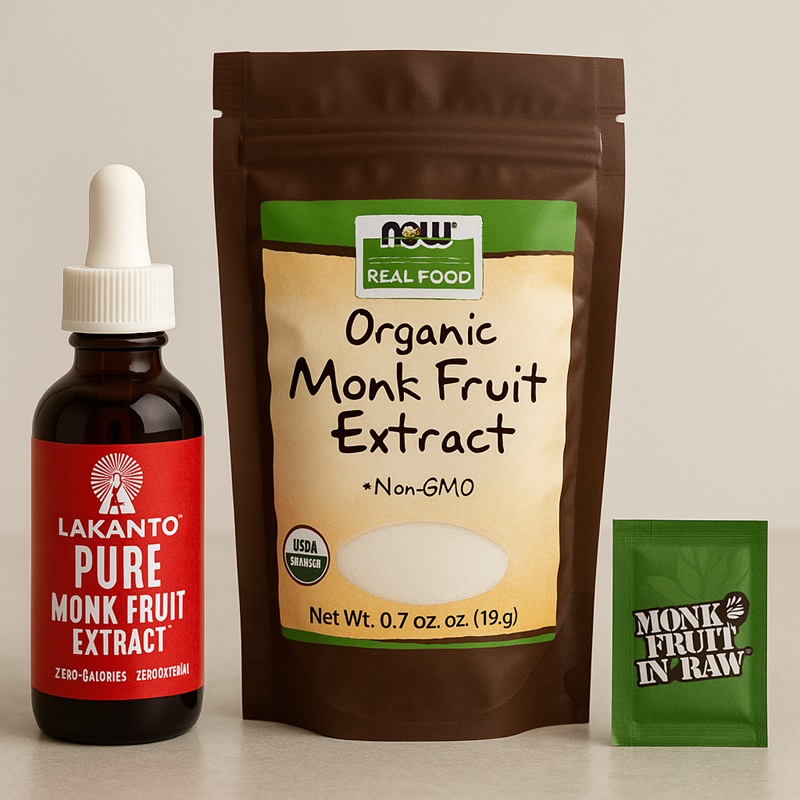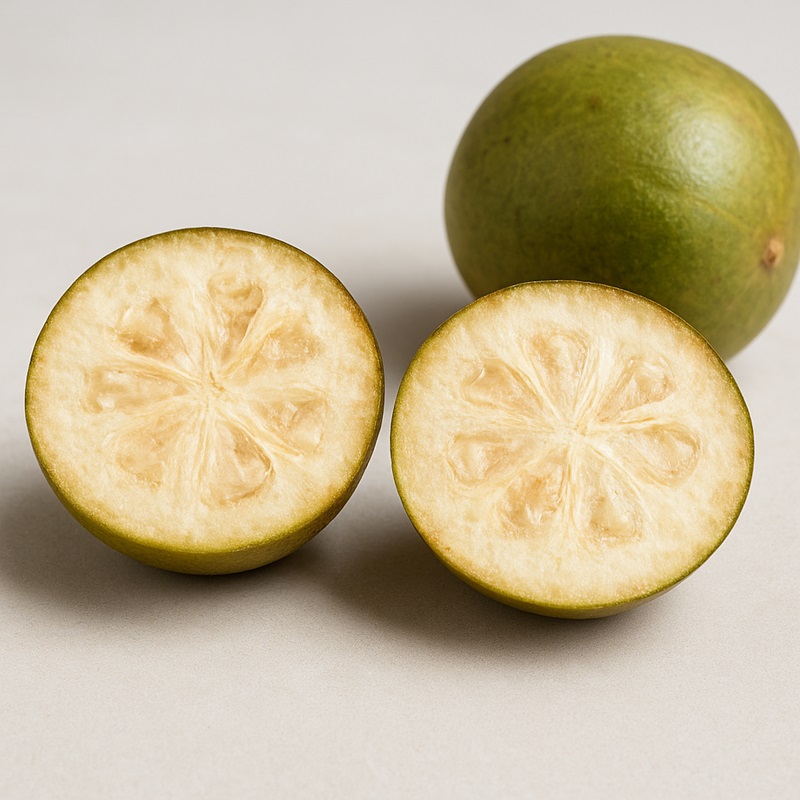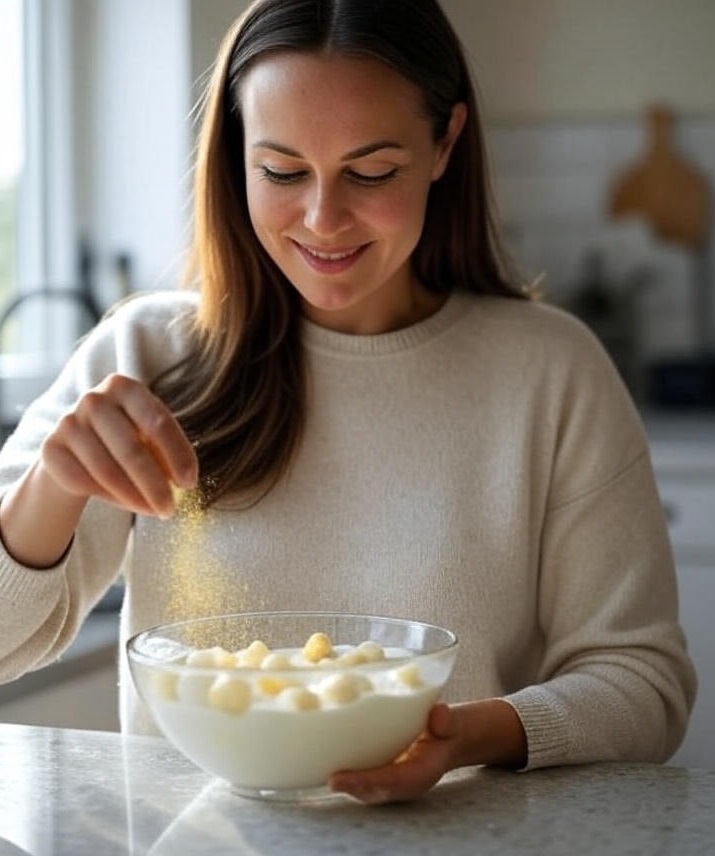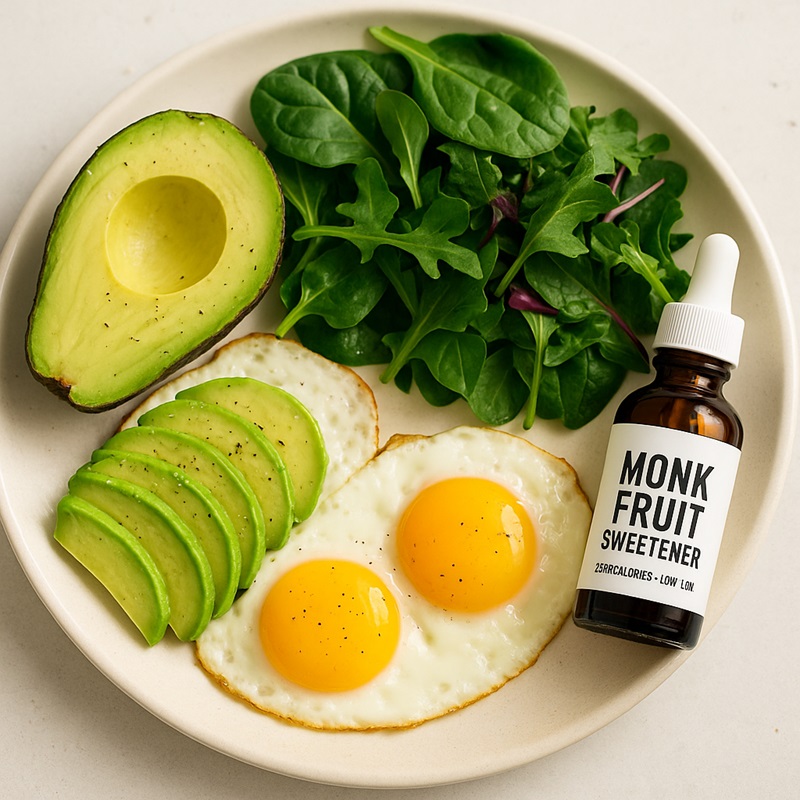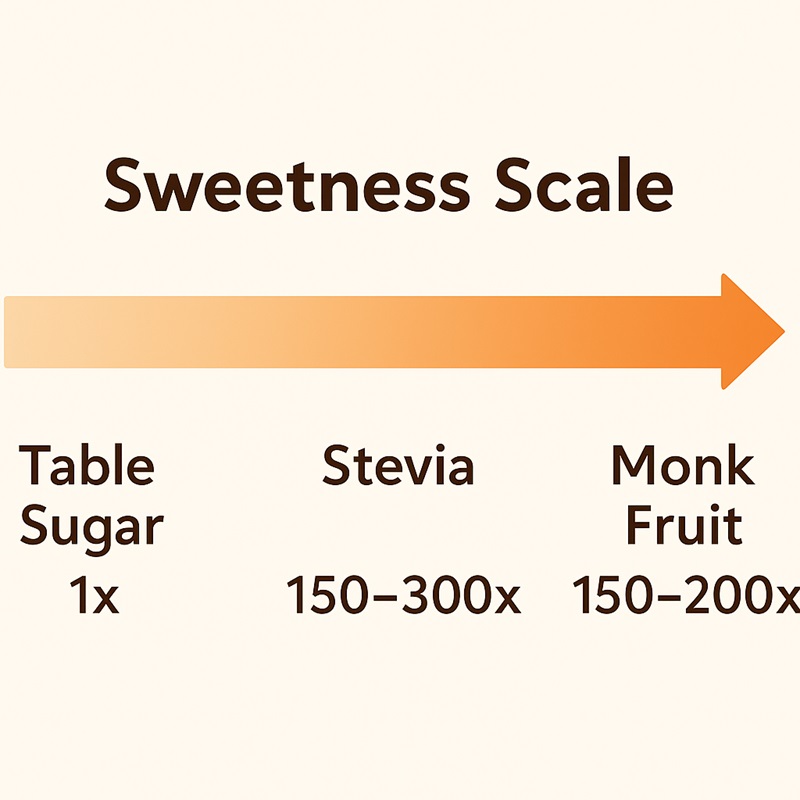Quick Answer
Monk fruit without erythritol is 100% monk fruit extract, a natural sweetener that’s up to 200 times sweeter than sugar. It has zero calories, no carbs, and doesn’t affect blood sugar, making it safe for diabetics, keto dieters, and health-conscious consumers. Unlike blends with sugar alcohols, it avoids digestive side effects — but it costs more, is harder to find, and has a stronger taste that takes adjustment.
What Is Monk Fruit?
Monk fruit, also called luo han guo, is a small melon native to southern China. Its sweetness comes from mogrosides, compounds that are metabolized differently than sugar and don’t provide calories or carbohydrates.
Used for centuries in traditional Chinese medicine, monk fruit is now prized worldwide as a plant-based, zero-calorie sugar substitute.
Why Most “Monk Fruit Sweeteners” Contain Erythritol
If monk fruit is so sweet, why dilute it? The answer is practicality. Pure monk fruit extract is too concentrated to use like table sugar.
Erythritol, a sugar alcohol, is commonly added to:
- Provide bulk for spoonable use
- Tone down monk fruit’s intense sweetness
- Prevent clumping in powdered products
The trade-off: while blends are easier to use, they may cause digestive discomfort in sensitive individuals. For clean-label seekers, this is a drawback.
Monk Fruit Without Erythritol: Pure Form Explained
When we say monk fruit without erythritol, we mean 100% extract with no fillers. It comes in three main forms:
- Liquid drops – best for drinks
- Powdered extract – popular in cooking and baking
- Capsules or supplements – targeted at niche diets
The taste is very sweet with a light fruity or herbal note. Recipe adjustments are required, since it’s not a 1:1 sugar replacement.
Health Benefits & Antioxidant Potential
Zero Calories & No Glycemic Impact
Monk fruit extract contains zero calories and zero carbs, and it doesn’t raise blood sugar or insulin. This makes it especially valuable for people with:
- Diabetes or prediabetes
- Keto and low-carb lifestyles
- Weight loss goals requiring calorie control
Antioxidant Activity
Early research suggests mogrosides may act as antioxidants, reducing oxidative stress and inflammation. For example, a Food Chemistry study found monk fruit extract reduced free radical activity in lab models. Human studies are still limited, but findings point to potential wellness benefits beyond sweetness.
Safety: Is Monk Fruit Without Erythritol Safe?
Yes. The FDA recognizes monk fruit extract as Generally Recognized as Safe (GRAS), and food agencies in Japan, Australia, and New Zealand agree.
So far, no harmful side effects have been reported. The only cautions are:
- Taste preference: Some find the fruity aftertaste unpleasant.
- Research gaps: Fewer long-term human studies exist compared to stevia or sucralose.
Overall, pure monk fruit is considered one of the safest sweeteners available.
Is Monk Fruit Without Erythritol Keto-Friendly?
Absolutely. Pure monk fruit extract has no carbohydrates and no calories, so it doesn’t interfere with ketosis. Many keto recipes use monk fruit drops in coffee, smoothies, or baking to stay sweet without breaking macros.
Monk Fruit vs Other Sweeteners
Here’s how monk fruit compares with popular sugar alternatives:
| Sweetener | Calories | Blood Sugar Impact | Taste | Cost | Digestive Side Effects |
| Monk Fruit (pure) | 0 | None | Very sweet, fruity note | High | None reported |
| Stevia | 0 | None | Bitter aftertaste for some | Moderate | None reported |
| Allulose | 0.4 / g | Minimal | Closest to sugar | Higher | Mild GI tolerance issues |
| Sucralose (Splenda) | 0 | None | Very sugar-like | Low | Some controversy |
| Erythritol | 0.2 / g | None | Sugar-like | Low | May cause bloating/gas |
Takeaway: Monk fruit extract is unique for being calorie-free, carb-free, and easy on digestion — but it’s more expensive and less widely available.
Does Monk Fruit Without Erythritol Taste Like Sugar?
Not exactly. Monk fruit is intensely sweet, with a mild fruity or herbal aftertaste. Some people adapt quickly, while others prefer blends with erythritol or allulose for a closer sugar-like flavor.
Tip: Over time, many users find the taste grows familiar and acceptable, especially in drinks and sauces.
Who Uses It (and Who Should Avoid It)
Best for:
- People with diabetes and insulin resistance
- Keto and low-carb dieters
- Parents avoiding artificial sweeteners for kids
- Health-conscious consumers seeking clean-label products
Not ideal for:
- Budget-conscious shoppers (it costs more than stevia or sucralose)
- Taste-sensitive individuals (aftertaste varies)
- Traditional bakers who need exact sugar-like performance
Taste & Recipe Adaptation Tips
Because monk fruit is 150–200x sweeter than sugar, a little goes a long way.
Approximate ratio:
- 1/8 teaspoon extract ≈ 1 cup sugar
Best uses:
- Coffee, tea, lemonade
- Yogurt and smoothies
- Sauces and marinades
- Baking (works best when combined with bulking agents like allulose or fiber)
Good news: monk fruit is heat-stable, so it won’t lose sweetness during cooking.
Risks & Limitations
- High price – usually $8–25 for small bottles
- Limited availability – blends dominate supermarket shelves
- Research gaps – human clinical trials are still sparse
Brand Spotlight: Pure Monk Fruit Options
Not all “monk fruit” sweeteners are equal. Here’s how three popular brands compare:
- Lakanto Pure Monk Fruit Extract
100% monk fruit, no fillers, extremely concentrated. Non-GMO and keto-friendly. One bottle has hundreds of servings. - NOW Real Food Organic Monk Fruit Extract
Certified organic and non-GMO, with minimal aftertaste. Heat-stable and versatile for cooking or baking. - Monk Fruit In The Raw®
Despite its name, this is not pure monk fruit. It’s a blend with erythritol or dextrose, making it spoonable but unsuitable if you’re avoiding sugar alcohols.
Where to Buy Monk Fruit Without Erythritol Online
Pure monk fruit extract is more accessible online than in supermarkets. Trusted retailers include:
- Amazon
- iHerb
- Thrive Market
- Directly from Lakanto or NOW Foods
Typical prices:
- Liquid drops (30–60 ml): $8–15
- Powdered extract (2–4 oz): $15–25
- Bulk packs (8 oz+): $40–60
Always check for labels like “100% monk fruit extract” and avoid products listing erythritol, dextrose, or maltodextrin.
FAQs About Monk Fruit Without Erythritol
Is monk fruit without erythritol safe for kids?
Yes. Pure monk fruit is considered safe for children. Since it doesn’t affect blood sugar, some parents use it in drinks or snacks. Taste acceptance may vary.
Does monk fruit break a fast?
No. With zero calories and carbs, monk fruit does not break a fast and is often used in fasting-friendly beverages.
Why is pure monk fruit so expensive?
Monk fruit is grown mainly in southern China, and extraction of mogrosides is labor-intensive. Since it’s not mass-produced like sugar or stevia, prices remain higher.
Final Takeaway
Monk fruit without erythritol is one of the cleanest natural sweeteners available: zero calories, no glycemic impact, and no digestive issues.
While it’s pricier and requires recipe adjustment, trusted brands like Lakanto Pure and NOW Real Food make erythritol-free options accessible. For diabetics, keto followers, and anyone seeking a clean sugar alternative, pure monk fruit is a safe, natural way to enjoy sweetness without compromise.


